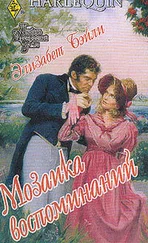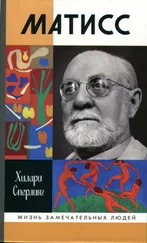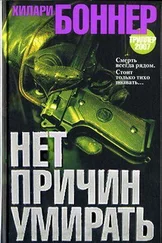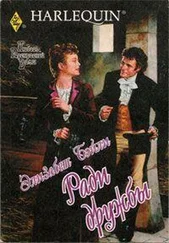Хилари Бэйли - The Ramparts
Здесь есть возможность читать онлайн «Хилари Бэйли - The Ramparts» весь текст электронной книги совершенно бесплатно (целиком полную версию без сокращений). В некоторых случаях можно слушать аудио, скачать через торрент в формате fb2 и присутствует краткое содержание. Жанр: Проза, на английском языке. Описание произведения, (предисловие) а так же отзывы посетителей доступны на портале библиотеки ЛибКат.
- Название:The Ramparts
- Автор:
- Жанр:
- Год:неизвестен
- ISBN:нет данных
- Рейтинг книги:3 / 5. Голосов: 1
-
Избранное:Добавить в избранное
- Отзывы:
-
Ваша оценка:
- 60
- 1
- 2
- 3
- 4
- 5
The Ramparts: краткое содержание, описание и аннотация
Предлагаем к чтению аннотацию, описание, краткое содержание или предисловие (зависит от того, что написал сам автор книги «The Ramparts»). Если вы не нашли необходимую информацию о книге — напишите в комментариях, мы постараемся отыскать её.
The Ramparts — читать онлайн бесплатно полную книгу (весь текст) целиком
Ниже представлен текст книги, разбитый по страницам. Система сохранения места последней прочитанной страницы, позволяет с удобством читать онлайн бесплатно книгу «The Ramparts», без необходимости каждый раз заново искать на чём Вы остановились. Поставьте закладку, и сможете в любой момент перейти на страницу, на которой закончили чтение.
Интервал:
Закладка:
Mrs. Keeney told me her husband was out, with such a weary air that I was surprised she offered me some refreshment. I accepted her offer, and before she left the room, asked what her husband had in mind for the house and garden. She shrugged, said she did not know, was not certain, and left the room. As I sat in that disordered room looking out at the rain over the garden, feeling profoundly uncomfortable and wishing I had never come, I heard an appalling sound — an eerie howling, followed by a heavy scratching and scrabbling at the door! I leaped to my feet and was retreating to the window, for I immediately recognized the sound for what it was, when, to my horror, the door opened. Mrs. Keeney entered with a tray, followed by — the beast!
“Come on,” I called, raising the window. “Let’s go out this way.”
And I freely confess I vaulted out, landing up to my ankles in the mud of the garden. Once outside I immediately realized that this was a most cowardly action, to leave a fellow citizen, and a woman at that, to face the danger alone. So I raised one leg and put it back over the sill, getting some purchase on the floor with my muddy foot and trying to heave myself back into the room, calling out, “Come on. Come this way, Mrs. Keeney.”
But the dog, a huge wolflike creature with feet as big as dinner plates, seemed to cause her no alarm. In fact they seemed on friendly terms. As the beast sniffed about her knees, she absentmindedly broke off a portion of the cake she had on the tray and handed it to him. He snuffled it down and seemed to want more. I regained a certain calm, although I was still very reluctant to go into the room. I recalled hearing of a naughty child who had once apparently got hold of an abandoned infant from a dog pack and had illicitly reared it until she was detected. It seems she had made quite a friend of the animal, which she had hidden in a potting shed, to the extent that the animal would not harm her. Eventually, of course, the dog grew older, began to hunt, was detected and destroyed. They say she wept and swore she could feed it on milk and honey. A likely story.
However, as I say, I remained calm to a point. Theoretically, too, I knew that at one time the dog had been a domestic animal — loathsome thought. So I remained, half in and half out of the window, observing the animal sitting by Mrs. Keeney, pounding its tail on the floor with its huge red tongue hanging out and its yellow fangs exposed. I took a deep breath and said, “Does this animal belong to you?”
“Yes,” she said. “It is my husband’s.”
I said with feeling, “I am very surprised.”
Then I drew my foot and leg back over the sill into the garden, said goodbye through the open window, and went back through the mud into the road. Mrs. Keeney watched me and I should say she was on the verge of tears.
I do not know how I got home. I was shaking all the way. It was not so much the encounter with the dog. It was the dug-over garden, the pushed-about furniture and Mrs. Keeney’s peculiar, nervous manner. It was the locked door. And halfway home it struck me forcibly that the boys’ horror stories about the rabbit bones must be true. Keeney obviously was not eating the beasts himself, but he must be trapping them and feeding them to the dog. The thought of that great animal wolfing down raw flesh with its yellow fangs made me retch. And of Keeney setting the traps and extracting the results with bloody hands. Then digging pits for the bones to hide the existence of the dog. The implications of the matter were horrendous.
I was standing in my dripping clothes drinking a glass of wine when Regan came downstairs to greet me. I told her my story straightaway. Although at first she could hardly believe it, she then accepted it with strange calmness. She said, “Take off your wet clothes first. And on no account tell Arthur.”
“As if I would,” I said.
“Go on then,” she ordered. “Well have to report it to the town council immediately.”
I nodded agreement. “Then he’ll have to go to another town,” she said matter-of-factly.
I turned in the doorway. “If they’ll have him,” I said.
She paused. “Yes, I suppose—”
“Do you remember Ritchie Callender?” I asked.
And neither of us spoke. Ritchie Callender had been one of our contemporaries. We had gone to school together, played together, robbed the orchards together. In his teens he had started doing a lot of gambling, neglected his work in the fields and finally got a girl pregnant and told her to say nothing to the council. When people eventually found out, the council tried to get another town to take him. But the councils of the towns he went to either rejected him outright or kept him a month or two and returned him to us. No town would accept him, he could not stay with us — so we had to exile him.
He came in again over our lawn one night, ragged, trembling and hungry. I went out to meet him. He stuttered out some horrible tale of what had happened to him — I forget it now, thank God — and at that moment the townspeople appeared in a mass. He gave me a despairing, hopeless look and ran back again over the lawn into the darkness. Try as I might, I’ve never forgotten his limping run over the grass, the way he ducked as he went into the trees. I left food on the grass for a week and it always went — packaging as well, so I know it was not taken by an animal. And then the food was left there, night after night, and after ten days I gave up putting it there. I’ve often wondered if he came back starving on the eleventh day, and the twelfth, and found nothing. But it was a big risk for me to leave it there. I doubt if I would do as much today.
Regan and I were staring at each other in horror. “Don’t let’s report him now,” she said. “We’ve got to go to Juram. We can find him there and talk it over.”
“It’s wrong,” I warned her.
“Perhaps he’s ill,” she told me. “Friends may be able to help.”
We both knew there was no possible excuse for not going immediately to the council. In Juram we would be virtually unobserved talking to Keeney. It was secretive, furtive and uncitizenlike. Let all your conversations be open to scrutiny: that is one of our precepts.
But we packed up swiftly and the three of us set out along the forest road for Juram.
Recollection of that scene at Keeney’s, the knowledge that we were acting in secret in defiance of the rights of our fellow citizens, apprehension about the trip — all these things troubled me deeply as we went. We were also sailing along in total darkness, apart from the light thrown by our headlamps. It was pouring rain and the road was unpleasantly potholed. I continually scanned the road and the verges of the forest, as we went. Once or twice I imagined movements at the borders of the road, the shaking of bushes and grasses and so forth, but we glided on uneventfully, seeing and hearing nothing. Soon we were in Juram. It is a charming and well laid out city. The market square, with its colored dome and tropical plants, is particularly fine. The gardens have more flowers and the houses, in some cases, better proportions than in our own city. Nevertheless, I like ours better.
We went straight to the Town Hall when we arrived, to register our presence and to inquire after Keeney. We crossed the domed square, where the light was filtered through to provide a charming colored floor, and went straight up the marble steps into the Town Hall.
After giving our names and city of origin, we went to find Keeney. Imagine our surprise when we were told that our town clerk was not in Juram, had not been there since the week before and was not even expected at any time in the future. It was inconceivable. Where on earth could he be? The most alarming thoughts filled our minds. Nevertheless we naturally showed no surprise to the officials of Juram, not wishing to betray that there were any irregularities in our town arrangements. We merely said we must have mistaken the day.
Читать дальшеИнтервал:
Закладка:
Похожие книги на «The Ramparts»
Представляем Вашему вниманию похожие книги на «The Ramparts» списком для выбора. Мы отобрали схожую по названию и смыслу литературу в надежде предоставить читателям больше вариантов отыскать новые, интересные, ещё непрочитанные произведения.
Обсуждение, отзывы о книге «The Ramparts» и просто собственные мнения читателей. Оставьте ваши комментарии, напишите, что Вы думаете о произведении, его смысле или главных героях. Укажите что конкретно понравилось, а что нет, и почему Вы так считаете.











